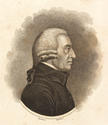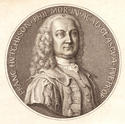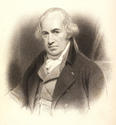 Glasgow's immense contribution to the Scottish Enlightenment owes a great deal to the Moral Philosophy Chair at the university, and particularly to the work of three of its occupants, Francis Hutcheson, Adam Smith and Thomas Reid. In the 1730s and 1740s, Francis Hutcheson taught a doctrine of moral sense and emphasised the natural benevolence of human beings. His teachings were developed by Adam Smith who occupied the Chair from 1752 until 1764 when he developed his philosophy of sympathy and embarked on investigations that culminated in his masterpiece of political economy, The Wealth of Nations. During Thomas Reid's occupancy of the Chair (1764 until his death in 1796) he took further the philosophy of common sense on which he had been working in his previous post in Aberdeen. His work had a great impact on Europe and America in the 19th century and has now re-emerged as a major force.
Glasgow's immense contribution to the Scottish Enlightenment owes a great deal to the Moral Philosophy Chair at the university, and particularly to the work of three of its occupants, Francis Hutcheson, Adam Smith and Thomas Reid. In the 1730s and 1740s, Francis Hutcheson taught a doctrine of moral sense and emphasised the natural benevolence of human beings. His teachings were developed by Adam Smith who occupied the Chair from 1752 until 1764 when he developed his philosophy of sympathy and embarked on investigations that culminated in his masterpiece of political economy, The Wealth of Nations. During Thomas Reid's occupancy of the Chair (1764 until his death in 1796) he took further the philosophy of common sense on which he had been working in his previous post in Aberdeen. His work had a great impact on Europe and America in the 19th century and has now re-emerged as a major force.
 In science also major advances were made during this period: by William Cullen, for whom Glasgow established the first lectureship in chemistry in Britain; by Joseph Black, discoverer of latent heat, who worked on a whole series of chemical problems; and by Black's collaborator James Watt, inventor of the improved version of the Newcomen steam engine, an invention that was to have an immense effect on the industrial revolution. The scientific work of John Anderson, who founded an institution which in due course became the University of Strathclyde, should also be noted.
In science also major advances were made during this period: by William Cullen, for whom Glasgow established the first lectureship in chemistry in Britain; by Joseph Black, discoverer of latent heat, who worked on a whole series of chemical problems; and by Black's collaborator James Watt, inventor of the improved version of the Newcomen steam engine, an invention that was to have an immense effect on the industrial revolution. The scientific work of John Anderson, who founded an institution which in due course became the University of Strathclyde, should also be noted.
 The work of these men and their colleagues resulted in Glasgow being a place of outstanding reputation internationally during the Age of Enlightenment.
The work of these men and their colleagues resulted in Glasgow being a place of outstanding reputation internationally during the Age of Enlightenment.